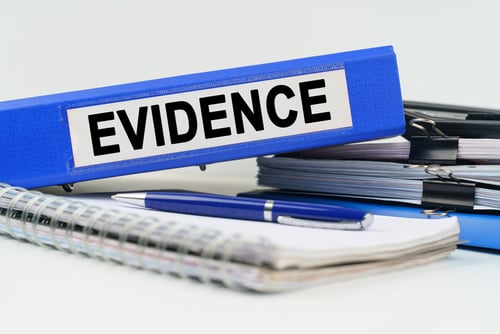Navigating legal processes can be daunting, especially when it comes to disputes between tenants and landlords. However, disagreements may arise, leaving both parties seeking a fair resolution. Luckily, small claims court offers an accessible and efficient way to address these conflicts. But remember, engaging in small claims court requires careful preparation to maximize your chances of success. Check out the video below where we go through the crucial steps of preparing for a small claims court case, whether you’re a landlord or tenant.
Contents of This Article:
- Tenant vs. Landlord Rights and Responsibilities
- When You Might Be Able to Sue Your Landlord
- Reasons Landlords May Sue Tenants
- How to Prepare for Your Court Case
- Protect Your Rental Business With Property Management
Tenant vs. Landlord Rights and Responsibilities
Whether you’re a tenant, landlord, or property management company in Philadelphia, it’s important to recognize tenant vs. landlord rights and responsibilities. Here are some of the main points to note for tenants and landlords.
Tenant Rights and Responsibilities
- Right to a Habitable Property- Tenants have the right to live in a safe and habitable property that meets essential health, safety, and building code standards. That said, landlords must maintain the property in a livable condition.
- Privacy Rights- Tenants have the right to privacy within their rental units. Landlords generally must provide notice before entering the rental, except in emergencies.
- Right to Non-Discrimination- Tenants have the right to be treated fairly and without discrimination based on race, color, religion, national origin, sex, disability, or familial status. Landlords cannot refuse to rent or discriminate against tenants based on these protected characteristics.
- Right to Security Deposit Protection- Tenants typically have the right to their security deposit back at the end of a lease term, minus any lawful deductions, within a specified period after moving out. Landlords must follow laws regarding security deposit handling and provide tenants with an itemized list of deductions, if applicable.
- Responsibility to Pay Rent on Time- Tenants are responsible for paying rent on time and adhering to the lease terms. Failure to pay rent or violating the terms of the agreement can result in eviction.

- Responsibility to Maintain the Property- Tenants are generally responsible for keeping their rental unit clean and in good condition. Additionally, they’re expected to report any maintenance issues promptly to the landlord.
Landlord Rights and Responsibilities
- Right to Collect Rent- Landlords have the right to collect rent from tenants on time as outlined in the lease agreement.
- Right to Select Tenants- Landlords can choose tenants based on factors like credit history, income, and references, as long as they don’t engage in illegal discrimination.
- Responsibility to Maintain the Property- Landlords are responsible for maintaining the rental property in a habitable condition. They must address repairs and ensure that the property meets health and safety standards.
- Right to Enter the Property- Landlords generally have the right to enter the rental to inspect the premises, make necessary repairs, or show the property to prospective tenants. However, they must provide reasonable notice, except in emergencies.
- Responsibility to Protect Tenant Privacy- Landlords must respect their tenants’ privacy and generally cannot enter the rental without proper notice or consent, except in emergencies.
- Right to Evict- In certain circumstances, such as non-payment of rent, violation of lease terms, or illegal activities, landlords have the right to evict tenants following the legal eviction process outlined by the jurisdiction.
When You Might Be Able to Sue Your Landlord
There are several situations in which a tenant may be able to sue their landlord. However, the specific circumstances may vary depending on the jurisdiction and the applicable laws. Here are some common scenarios where tenants may have grounds to sue their landlords.
- Security Deposit Dispute- If a landlord refuses to return a tenant’s security deposit without a valid reason or fails to provide an itemized list of deductions, the tenant may file a claim in small claims court to recover the deposit.
- Unlawful Eviction- If a landlord attempts to evict a tenant without following the proper legal procedures or without a valid reason, the tenant may take legal action to challenge the eviction.
- Property Damage- If a landlord fails to address significant property damage that affects the habitability of the rental unit, despite being informed, the tenant may file a claim to seek compensation or repairs.
- Breach of Warranty of Habitability- If the rental property becomes inhabitable due to serious maintenance issues, such as lack of heating, plumbing issues, or pest infestations, and the landlord doesn’t fix the situation, then the tenant may pursue legal action.
- Rent Disputes- If a tenant believes that the landlord is overcharging rent, illegally increasing the rent, or failing to provide services included in the rental agreement, the tenant may file a claim to seek a resolution and potential compensation.
- Personal Injury- If a tenant suffers injuries due to the landlord’s negligence, such as hazardous conditions or lack of maintenance, they may take legal action in small claims court to seek compensation.
Reasons for Landlords to Sue Tenants
Unfortunately, the end result of several landlord-tenant disputes is small claims court. Tenants may end up in small claims court for various reasons related to their tenancy.
- Non-payment of Rent- If a tenant fails to pay rent as stated in the lease agreement, the landlord may file a lawsuit to recover the unpaid rent and potentially seek eviction.

- Property Damage- If a tenant causes substantial damage to a rental property beyond normal wear and tear, the landlord may sue to recover the repairs or replacement costs.
- Holdover Tenancy- If a tenant continues to occupy the rental after the lease term ends without the landlord’s consent, the landlord may sue for eviction and potentially claim damages for the unauthorized occupancy.
- Lease Violations- When a tenant breaches specific terms of the lease agreement, such as subletting without permission, violating pet restrictions, engaging in illegal activities on the premises, or violating noise or occupancy rules, the landlord may pursue legal action.
- Unpaid Utilities or Fees- If a tenant fails to pay utility bills or other fees they’re responsible for per the lease agreement, the landlord may take legal action to recover those unpaid amounts.
How to Prepare for Your Court Case
Preparing for a tenant vs. landlord small claims court case involves several important steps to ensure you have a strong case and are ready to present your arguments effectively. Here’s a general guide on how to prepare your small claims court case.
Understand Your Rights
You’ll want to familiarize yourself with your rights as a tenant or landlord in your jurisdiction. So, research the local landlord-tenant laws, regulations, and ordinances that apply to your situation.
Review the Lease Agreement
Before going to small claims court, you’ll want to carefully review your lease agreement or rental contract. Identify any clauses or provisions that are relevant to your dispute. This would help you determine whether the landlord has violated any terms and whether you have a valid claim.
Document Everything
It’s crucial to keep a detailed record of all interactions between each party, including dates, times, and summaries of conversations or incidents. Additionally, document any maintenance requests, repairs, or complaints you made, as well as the landlord’s responses (or lack thereof). This documentation will serve as evidence to support your claims. Landlords should record each time they receive and resolve maintenance requests, repairs, or complaints.
Gather Supporting Evidence
Collect all relevant documents, records, and evidence to support your case. This may include the lease agreement, photographs or videos of any property damages, communications with the landlord or tenant, receipts for rent payments, and other documentation related to the dispute.
Assess Your Damages
Determine the damages you have suffered due to the landlord or tenant’s actions or negligence. This could include unpaid security deposits, unpaid rent, expenses for repairs, or other financial losses. Calculate the exact amount you’re seeking and ensure you have supporting evidence to substantiate your claims.
Consult With Professionals
Consider consulting with professionals who can support your case. For instance, if there are repair issues, get quotes from contractors or experts who can provide written statements or reports about the property’s condition.
Understand Court Procedures
Familiarize yourself with the small claims court procedures in your jurisdiction. Understand the filing process, deadlines, and any specific requirements for your case. This will help you avoid procedural eros and ensure your case proceeds smoothly.
File Your Claim
Prepare and file your claim with the small claims court. Follow the instructions provided and ensure that you include all the necessary information. For instance, pay attention to deadlines and any associated fees with filing.
Prepare Your Argument
Develop a clear and concise argument that presents your case effectively. Outline the key points you want to address and practice presenting them to prepare for court. Additionally, consider the other party’s potential arguments and prepare counterpoints to strengthen your position.

Organize Your Case
Compile all the evidence, documents, and records in an organized manner. You’ll want to create a file or folder containing everything you need for your court appearance. In turn, it’ll make it easier for you to present your case and respond to any questions during the hearing.
Attend Mediation
Some jurisdictions require parties to attend a mediation session before proceeding to trial. So, be prepared to negotiate and explore potential resolutions during this session.
Remain Professional
Dress professionally for your court appearance to show that you’re serious about your case. Additionally, stay composed and respectful throughout the entire court process. Practice beforehand, and present your case clearly and calmly, addressing the judge appropriately.
Protect Your Rental Business With Property Management
Tenant vs. landlord cases in small claims court can be incredibly time-consuming. However, the more prepared you are, the smoother the process will be. Additionally, knowing and understanding your rights and responsibilities as a landlord or tenant can help you avoid a lawsuit.
Need More Advice? contact us today!
One of the best ways to ensure compliance throughout all rental processes is with comprehensive property management. Bay Property Management Group offers full-service property management, from rental marketing to tenant screening, maintenance, and more. Contact BMG today to learn more about our services throughout Baltimore, Philadelphia, Northern Virginia, and Washington, DC.

